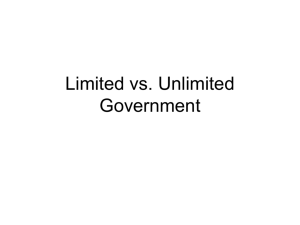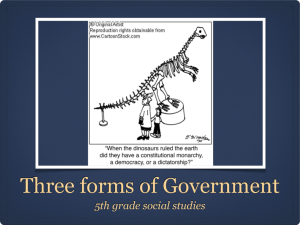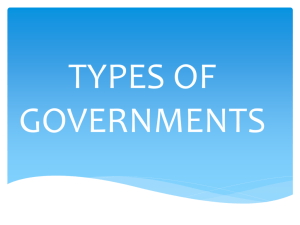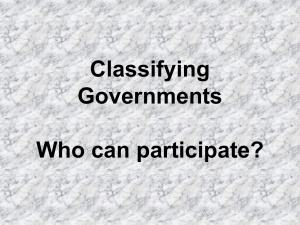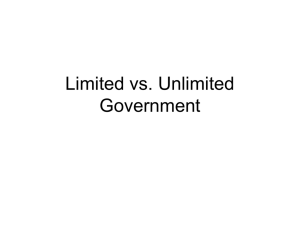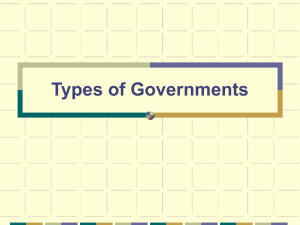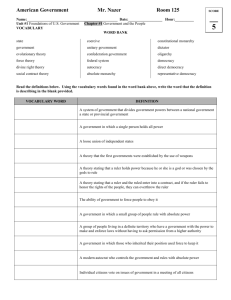Population, Globalization, Basic Institutions & Citizenship
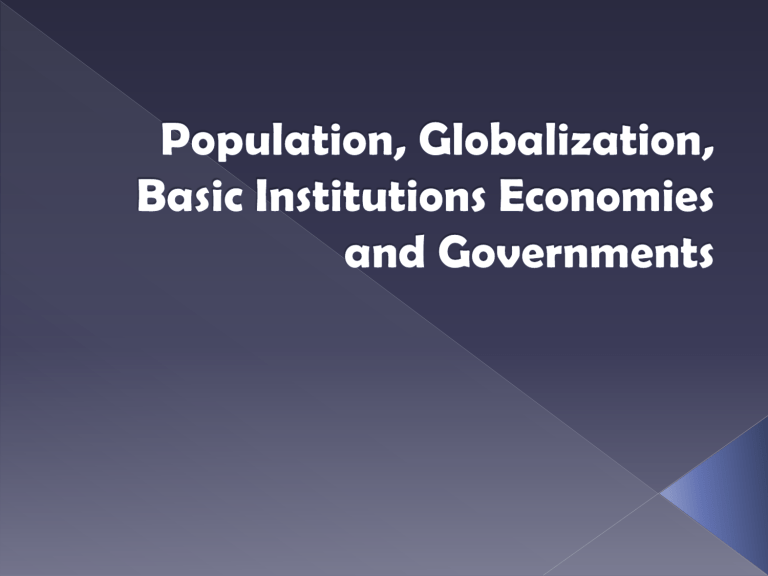
How does population affect our society?
Overpopulation, pollution, Business types of transportation, number of schools
What factors influence a country’s population growth rate?
Births, deaths, and people migrating to and from the country affect a country’s population growth rate.
Measures the number of people living in an area
Where do most of the worlds population live? (look at map on pg 87)
Why do you think there is this population pattern?
Family
Education
Religion
Government
Economy
Takes care of children
Provides emotional and physical support
Teach the accepted norms, behaviors
Teaches culture
Societies rely on education to pass knowledge
Schools teach norms, values
Incredibly diverse
Helps explain the meaning of life and death and the difference between good and bad
Passed down and supported by traditional practice, literature and sacred text
In order to resolve conflict
A system of leaders and laws that help people live safely together in their community
System of using resources to meet needs
Must be able to make buy sell and trade goods and services to get what they want and need
How does science and technology shape and control their environments
What are the impacts of technology?
The process in which countries are increasingly linked to each other through culture and trade
Not only links world’s people but also connects businesses and affects trade
Globalization links the world’s countries together through culture and trade.
The world community works together to solve global conflicts and crises
How has the expansion of global trade affected our world?
Fast, easy global connection have made cultural exchange, trade, and a cooperative world community possible.
World Community encourages cooperation.
Why do you think they do so?
To resolve global conflict
51 countries
An organization of the world countries that promotes peace and security around the globe
Ex: coming together to provide humanitarian aid
GOVERNMENT
1. What is government?
2. What does a government do?
3. Why do people need government?
4. What types of government are there?
GOVERNMENT
1. What is government?
GOVERNMENT
1. What is government?
Government is an organization people set up to protect the community and make rules
What is government and what role does it play in our lives? Why do we need government?
In its simplest form, a government determines the way in which a country, state, county, township, city, or village is run.
At every level, government makes laws that citizens must obey and creates policies about everything connected with the daily life of a community—whether that community is a nation, a state or the town where you live.
Government establish order and ensure justice
Make laws
Regulate business and trade
Provide aid to people
Shape culture and economy of a country as well as the daily lives of the people
GOVERNMENT
2. What does a government do?
GOVERNMENT
2. What does a government do?
Protects the community
Makes laws
Keeps order
GOVERNMENT
3. Why do people need government?
GOVERNMENT
3. Why do people need government?
For protection of people and property
Making rules
Enforcing laws
GOVERNMENT
4. What types of government are there?
Dictatorship
Absolute Monarchy
Constitutional Monarchy
Direct Democracy
Republic/Representative Democracy
Theocracy
Totalitarian
Democracy
Imagine what life would be like without governmental systems
•
•
•
Limited government = the power of government leader is limited by the constitution.
Everyone, including all authority figures, must obey the laws.
Individual rights of the citizen are protected by the constitution.
To gain power is not the main goal in a limited government.
Unlimited government: government’s power has no limits. Usually no constitution or laws limiting the governments power
Control is placed solely with the ruler and his/her appointees. No limits imposed on his /her authority.
These governments have total control over their citizens.
Limited Government Unlimited Government
Power Restricted by the people
• Bill of Rights-
• Constitution-Statement of a country’s basic laws and values
• Parliament-a national law making body(Canada &
England)
Constitutional Monarchy-
Government ruled by king or queen, power is determined by the nation’s constitutions and laws
Republic-Government in which power belongs to the citizens, who govern themselves through elected representation
No limits on power
Totalitariancentralized government that does NOT tolerate parties of differing opinion, dictatorial control over many aspects of life, exercises control over freedom-North Korea
Communistsystem structured upon common ownership of the means of production and characterized by the absence of social classes, money, and the state-Germany, Soviet Union
Dictatorshipform of government where political authority is monopolized by a single person or political entity, and exercised through various oppressive mechanisms- Kim
Jong Il, North Korea
Absolutismform of government in which the ruler is an absolute dictator
Absolute Monarchya monarchy that is not limited or restrained by laws or a constitution-France King Louis XIV (reigned
1643-1715)
A country ruled by a single leader. The leader has not been elected and may use force to keep control.
In a military dictatorship, the army is in control.
EX: Cuba
Government ruled by a King or Queen
Powers are determined by the Nation’s
Constitution and law
This is a limited government
EX: England
Rule by a King or Queen
They have absolute power
Are not restrained by a constitution or laws
Example of unlimited power
EX: Qatar and Saudi Arabia
Government by the people
People vote directly on every issue
Only practical in a small community
Citizens are the ultimate source of government authority
Citizens come together to discuss and pass laws and select leaders
EX: Ancient Athens
Government by the people; citizens are the ultimate source of government authority
Indirect form of democracy
Citizens elect representatives to make government decisions on their behalf
Representatives elected for set terms
People are represented by elected officials
Used in large countries
Also known as a Republic government
EX: Ancient Rome United States of America
In a democracy, the government is elected by the people.
Everyone who is eligible to vote has a chance to have their say over who runs the country.
It is distinct from governments controlled by a particular social class or group
A democracy is determined either directly or through elected representatives.
Communist
system of government in which the state plans and controls the economy
a single, often authoritarian party holds power, claiming to make progress toward a higher social order in which all goods are equally shared by the people.
Ex:
CHINA, CUBA
Government officials regarded to have religious authority
Laws rooted in a particular religion or religious doctrine
Government power is unlimited
Governmental rulers are identical with the leaders of the dominant religion
Governmental policies are either identical with or strongly influenced by the principals of the majority religion.
Government claims to rule on behalf of God or a higher power
EX: Iran
Dictator holds ultimate authority
Government tightly controls all aspects of life-political, social, and economic
No formal or informal limits on government
EX: North Korea
DICTATORSHIP OLIGARCHY DEMOCRACY
One person has all of the power; also called Monarchy, Tyranny, or
Totalitarianism
A few people have all the power; also known as Aristocracy or
(sometimes) Communism
Everyone may participate in government; also called
Representative Democracy or
---------------------------------------------------------------------------------------anything!
Unlimited Government—rulers can do anything!
Limited Government—people who make laws also follow the laws!
Leaders are “ born ” in to power
(monarchy) or gain power by force
(military dictatorship)
Decisions are made by only a few people—usually the rich and influential
People elect representatives to make decisions for them
Citizens may unite in their loyalty to their ruler and decisions can be made quickly
No individual freedoms given, needs of the citizens not considered, ruler may make poor choices
Decisions can be made quickly and good leadership may prevail, as long as no one person takes over
Everyone is involved and has equal power, there is a lot of loyalty and support, individual freedoms are given
No individual freedoms are given, the needs of the people are not considered, and rulers may make poor choices
Time consuming, since everyone gives input
Rulers are called: King, Queen, Tsar,
Czar, Emperor, Tyrant, Dictator
Can be found in: Saudi Arabia, the UK,
Cuba
Rulers may be called: Aristocrats,
Oligarchs
Can be found in: China, Russia
Representatives are called: Senators,
Representatives, Presidents, Prime
Ministers
Can be found in: the USA, India,
Mexico
Anarchy: no government; very dangerous
1. NAME THAT GOVERNMENT:
The pharaoh was an absolute ruler. He commanded the army and controlled irrigation and grain supplies. People in this society considered the pharaoh to be a god.
Monarchy
In the first century AD, the Greeks recognized three types of government: monarchy, aristocracy, and anarchy.
The Jews at the time did not fit into any of these categories as they believed only God and his laws were sovereign.
Theocracy
3. NAME THAT GOVERNMENT:
In 450 B.C. this civilization assembled and all citizens voted on laws. A council of 500 prepared business for the assembly.
Direct
Democracy
4. NAME THAT GOVERNMENT:
The Nazi Party took over every aspect of this country’s social, economic & political life. Hitler quickly secured his power by burning down a legislative building and used the incident to obtain emergency powers, becoming an absolute ruler.
Dictatorship
5. NAME THAT GOVERNMENT:
In this country some people are elected to make laws and some people are appointed officials.
Representative
Democracy
Rights- things we must do
EX: Voting
Responsibilities- tasks we should do as citizens but are not required by law
EX: helping your community
Traditional
› Work that people do is based on long established customs
Hunt, fish, tend animals and crops
Command
›
›
›
›
The government controls the economy
Decides what goods and services to produce
Decides how much to produces and how goods and services are distributed
Sets wages and prices
Market
›
›
›
Based on private ownership, free trade and competition
Individuals and business are free to buy and sell what they wish with little interference from the government
Prices are determined by supply and demand
›
›
›
Communism
Socialist
Free Enterprise
What type of economy is the United
States?
Mixed Economy(command and market)
Agriculture
› Businesses that focus on growing crops and raising livestock
Manufacturing
› Businesses that make finished products from raw goods
Service
Business that provides services instead of goods ›
Tertiary
›
›
Wholesale
Business that sell to business
Retail
Business that sell directly to final costumers
Developed
›
›
›
›
›
Higher GDP
High Life expectancy
Higher quality of life
Advanced healthcare
Productive economy
High levels of education ›
Developing
›
›
›
›
›
Lower quality of life
Less productive economy
Lower life expectancy
Lower GDP
Less access to health care and technology
